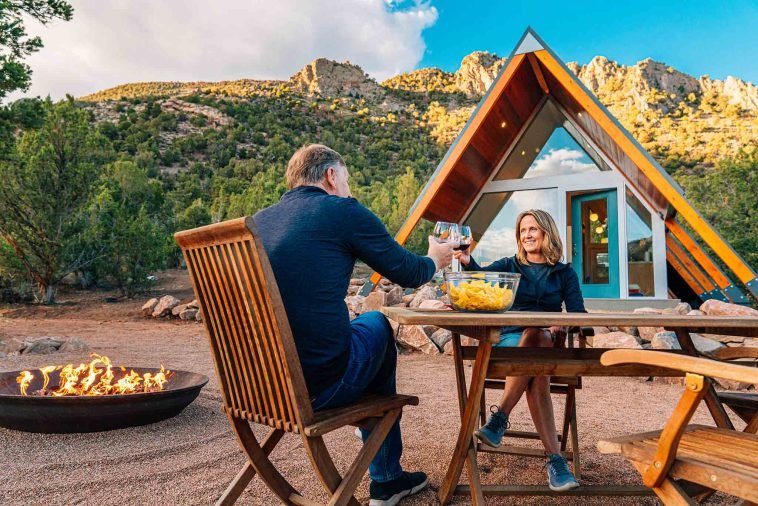Introduction.
Thinking about becoming a remote Airbnb host? You’re not alone. With the rise of remote work, short-term rental hosting has become an attractive side hustle, even for those who want to do it from afar.
Managing an Airbnb remotely means you can invest in properties anywhere in the world, open your door to guests without being on-site, and still earn extra income – all without ever stepping foot in the place if you don’t want to.
But hosting remotely isn’t without its challenges. From managing guest expectations to handling maintenance issues from miles away, there’s a lot that goes into being a successful remote host.
So, if you’re considering jumping into this space or want to improve your existing setup, here’s everything you need to know to host an Airbnb remotely.
Why Host Airbnb Remotely?
Hosting remotely can bring both freedom and financial opportunity. With a well-managed system, it’s entirely possible to achieve an efficient, profitable operation from anywhere.
This approach allows you to explore different markets (think beach towns, urban centres, or popular tourist areas) without the need to live there.
You can also sidestep the day-to-day responsibilities of in-person hosting, making it ideal for those who want to manage a short-term rental business alongside other commitments.
The Benefits of Hosting Airbnb Remotely
- Flexibility to Work from Anywhere: With remote hosting, there’s no need to live near your rental property. This freedom opens up a world of potential locations and lets you tailor your Airbnb business to high-demand areas without relocating.
- Scalability: Managing remotely makes it easier to scale by adding more properties in different areas, creating a diversified income stream.
- Hands-Off Hosting: Remote hosting often requires systems and teams in place for cleaning, maintenance, and guest communication, reducing the personal time investment needed.
The Challenges of Hosting Airbnb Remotely
Despite the benefits, hosting remotely can also bring unique challenges. You’ll need to build reliable systems to handle cleaning, maintenance, check-ins, and check-outs without being physically present. Communication with guests also needs to be fast and clear, so they feel attended to even if you’re miles away.
How Do I Host an Airbnb Remotely?
Step 1: Set Up Reliable On-Site Support.
Having a trusted team or partner on the ground is critical. This often includes a cleaner, a property manager, and possibly a handyman. Here’s what each should cover:
- Cleaner: They’re the backbone of your operation. Cleaners are usually the ones who report on the property’s condition after each guest and alert you if there are any issues.
- Property Manager: If you’re not around, a property manager can be your eyes and ears. They handle emergencies, manage guest relations, and coordinate with cleaners and maintenance workers.
- Handyman or Maintenance Service: Things break. Whether it’s a faucet, a bed frame, or a light bulb, having a reliable handyman on call will save you from those late-night maintenance calls.
Tip: Try platforms like TaskRabbit, Handy, or local Facebook groups to find reputable service providers.
Step 2: Use Smart Technology for a Seamless Experience.
Smart home technology can help you run a smooth Airbnb operation without being on-site.
- Smart Locks: These are essential for remote hosting. A smart lock allows guests to check themselves in using a unique code, so you don’t have to coordinate key handoffs.
- Noise Monitors: Noise complaints can hurt your Airbnb rating, especially if guests disturb neighbors. Tools like Minut or NoiseAware alert you if sound levels exceed a certain threshold.
- Thermostats and Lighting: Smart thermostats and lights let you control the energy usage of your property remotely, helping you save on utilities and ensure guests arrive to a well-lit, comfortable home.
Popular Tech Choices: August Smart Lock, Ecobee Thermostat, and Wyze Camera (for outdoor monitoring only, as indoor cameras are usually discouraged).
Step 3: Automate Guest Communication and Payments.
When managing from afar, automated communication is essential to keeping guests happy and informed.
- Automated Messages: Use tools like Hospitable or Guesty to automate messages about check-in instructions, house rules, and checkout times.
- Dynamic Pricing: Airbnb’s Smart Pricing tool or third-party apps like Wheelhouse and Pricelabs adjust rates based on demand, helping you maximize profits.
Step 4: Set Clear Rules and Expectations.
Without being there in person, clear and detailed house rules are a must. Outline everything – from noise policies to check-in times to local information. Some useful tips:
- Keep it friendly but firm.
- Make sure guests know about any neighborhood-specific rules.
- Remind guests of anything unique about your property, like trash day or quirky features.
Step 5: Regularly Review and Improve.
Once you’ve hosted a few guests, review the feedback, both positive and constructive, to adjust your systems if needed.
Maybe there’s a small improvement that could enhance guest comfort, or perhaps there are common questions that could be answered in an FAQ section within your Airbnb listing.
Pros and Cons of Hosting Airbnb Remotely
Pros:
- Global Reach: Manage properties in the most profitable markets, regardless of your location.
- Hands-Off Approach: Reduced need for daily involvement with a well-trained team and automated systems.
- Cost-Efficiency: Save on travel and relocation expenses by handling everything remotely.
Cons:
- Dependence on Local Services: You rely heavily on your on-site team, so a good relationship is essential.
- Limited Control Over Last-Minute Issues: When emergencies arise, it may be harder to solve them quickly if you’re not nearby.
- Added Expense: You may need to pay a property manager or other services, which cuts into profits.
FAQs on Hosting Airbnb Remotely
1. Can I manage an Airbnb from a different time zone?
Absolutely. However, be prepared to manage late-night requests or use a virtual assistant who operates during your property’s time zone.
2. How can I handle cleaning and restocking remotely?
Hire a trusted cleaner or cleaning service. Many of them also offer restocking services for basic supplies, like toiletries and coffee.
3. How do I manage guest communication while hosting remotely?
Automation tools can handle most communication, from pre-arrival instructions to post-checkout thanks. For special requests, you can respond personally or delegate it to your property manager.
4. How do I handle emergencies?
Have a local contact (property manager or a trusted neighbor) who can address urgent issues. This might mean an additional cost, but it can save you in potential lost bookings or bad reviews.
5. Is it harder to maintain a good rating while hosting remotely?
It can be challenging, especially if your team on the ground isn’t reliable. Regularly check in with your team, ask guests for feedback, and address any consistent issues immediately.
Conclusion
Hosting an Airbnb remotely can be an ideal way to earn extra income without being tied to one location.
With the right systems, reliable support, and clear communication, it’s possible to create a seamless experience for guests, no matter where you’re based.
So, would you try remote hosting for your Airbnb? Or if you’re already hosting, what tips have worked best for you?





GIPHY App Key not set. Please check settings